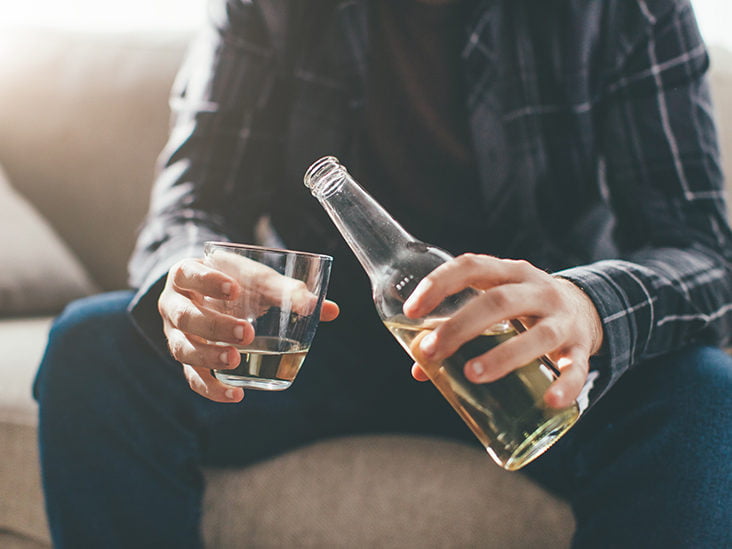What Causes Liquor addiction?

Young depressed man
Liquor sets off your mind to deliver the award framework substance dopamine. This leads your cerebrum to interface good sentiments with drinking and spurs you to ache for more. It likewise influences serotonin, which assumes a part in things like state of mind and rest, says a recent report in the Diary of Neuroscience.
As you drink more and dependence grabs hold, you will encounter less joy (foster resistance), and you might have withdrawal side effects when you attempt to quit drinking. Weighty consumers will start to drink significantly more trying to keep withdrawal under control.
“Early indications of issue drinking or liquor abuse can be unobtrusive,” Wellbridge Compulsion Therapy and Exploration clinical chief Harshal Kirane, MD, advises WebMD Interface with Care. “For instance, beginning to focus on exercises that include liquor consistently prompts a change in day to day schedules and connections.”
“As drinking turns out to be more daily schedule, changes in rest designs, temperament, energy, and interests can flag the beginning of early liquor use jumble,” says Kirane. “For some’s purposes, this is a basic tipping point, since liquor consumption expansions trying to mitigate the very challenges it is making.”
Who Is at Higher Gamble for Liquor addiction?
These gamble elements can make you more probable become dependent on liquor:
Hereditary qualities and family ancestry. In the event that you have a parent or a direct relation with liquor habit, your gamble goes up. Research shows that qualities are answerable for about portion of the gamble for AUD, as indicated by the Public Establishment on Liquor Misuse and Liquor addiction (NIAAA).
Underage drinking. Assuming you begin drinking before you’re 15 years of age, you might be multiple times likelier to foster liquor dependance sometime down the road, the NIAAA says.
Continuous drinking. The Mayo Facility says drinking liquor again and again or hard-core boozing can prompt enslavement.
In the event that you or a friend or family member is battling with fixation, don’t stand by. Get help today.
Psychological wellness conditions. As per a 2019 survey in Lancet Psychiatry, diseases like misery or bipolar issue can incline you toward liquor compulsion, particularly on the off chance that you use liquor to self-sedate.
Injury history. Awful encounters before, including adolescence misuse, are emphatically connected to creating liquor addiction further down the road, the NIAAA says.
Male orientation. Men are almost certain than ladies to become dependent on liquor. The 2018 Public Review on Medication Use and Wellbeing tracked down 9.2 million men and 5.3 million ladies in the U.S. had a liquor use jumble.
Social variables. Social and family customs, culture, poor parental help, and friend strain can assume parts in liquor enslavement, the Mayo Center says.
Finding support
Medicines for liquor reliance can incorporate a blend of:
- Long term programs
- Social treatments
- Drugs like naltrexone and disulfiram
- Social help
- Your essential consideration specialist is your best beginning stage. They can allude you to an expert for treatment.
“The best treatment for liquor abuse relies upon the individual — there is nobody right method for accomplishing and keep up with recuperation,” says clinical clinician Aaron Weiner, PhD. “For the most part, achievement includes a blend of expert treatment, (for example, mental conduct treatment and care based approaches) and friend support gatherings, (for example, 12-step cooperations like AA and Brilliant Recuperation).”
“The best therapy for liquor abuse incorporates clinical detoxification most importantly whenever justified,” says clinical analyst Lina Haji, PsyD. “Ongoing recovery, including 12-step programming, an emotionally supportive network, organized gathering and individual treatment, and backslide counteraction psychoeducation is exceptionally successful.”
On the off chance that you or a friend or family member are battling with liquor habit, WebMD Interface with Care Counsels are holding on to help.










